 Petzlover
Petzlover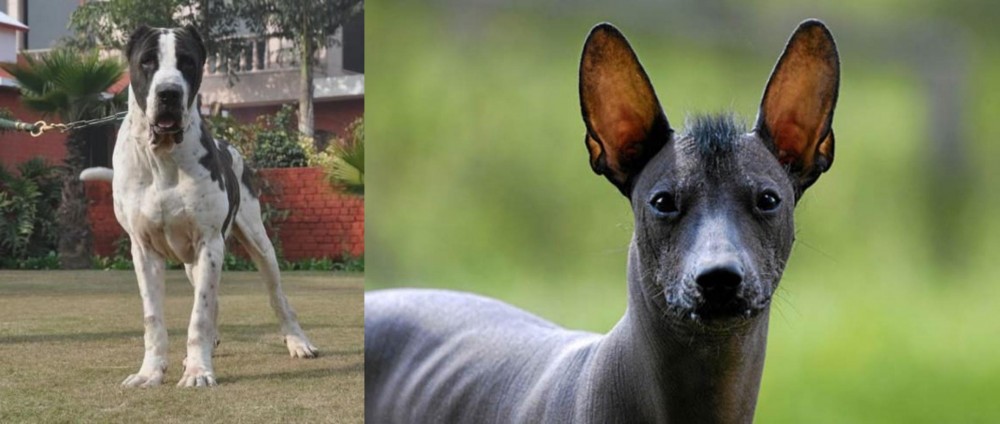 Bully Kutta is originated from India but Mexican Hairless is originated from Mexico. Bully Kutta may grow 31 cm / 13 inches higher than Mexican Hairless. Bully Kutta may weigh 68 kg / 150 pounds more than Mexican Hairless. Bully Kutta may live 8 years less than Mexican Hairless. Bully Kutta may have more litter size than Mexican Hairless. Both Bully Kutta and Mexican Hairless requires Low Maintenance.
Bully Kutta is originated from India but Mexican Hairless is originated from Mexico. Bully Kutta may grow 31 cm / 13 inches higher than Mexican Hairless. Bully Kutta may weigh 68 kg / 150 pounds more than Mexican Hairless. Bully Kutta may live 8 years less than Mexican Hairless. Bully Kutta may have more litter size than Mexican Hairless. Both Bully Kutta and Mexican Hairless requires Low Maintenance.
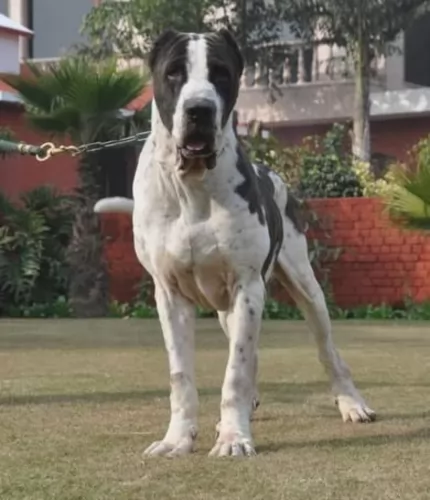 This well built, powerful dog breed is also known as Indian Alangu Mastiff or Pakistani Mastiff. These dogs come from the Punjab and Sindh region of the Indian subcontinent. It is believed that mastiff dogs came with British soldiers during the British invasion, however English Mastiffs, Bulldogs, Bull Terriers and Great Danes are seen as potential ancestors of this large dog.
This well built, powerful dog breed is also known as Indian Alangu Mastiff or Pakistani Mastiff. These dogs come from the Punjab and Sindh region of the Indian subcontinent. It is believed that mastiff dogs came with British soldiers during the British invasion, however English Mastiffs, Bulldogs, Bull Terriers and Great Danes are seen as potential ancestors of this large dog.
There are disputes about the country of origin of this breed, and some people claim that the dog comes from India, while others say it comes from Pakistan. Certainly in Pakistan these dogs are still used for fighting.
 Who can believe that the origin of these dogs which hail from Mexico, goes back more than 3,500 years?
Who can believe that the origin of these dogs which hail from Mexico, goes back more than 3,500 years?
Known as the Xoloitzcuintli dog or Xolo for short, they comes in different sizes – toy-, miniature and standard which means there are different sizes. Both coated- and hairless dogs can be found in the same litter.
There was a time when the dog nearly became extinct buts its numbers have recovered. This is no doubt because there was a time when the natives ate the dog’s flesh.
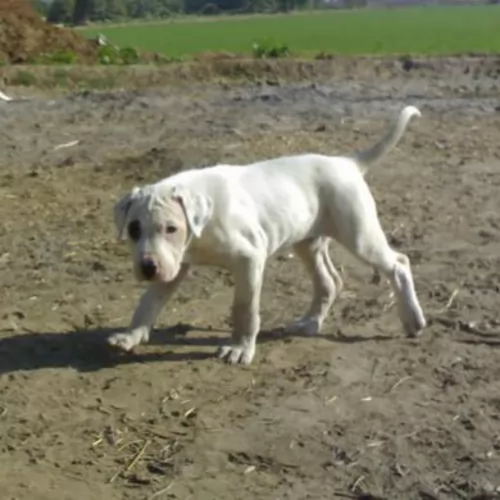 The Bully Kutta is a big, heavy, muscular dog, standing at roughly 81 – 89cm and weighing in at 70–90kg. He isn’t particularly good with children or with other pets simply because the dog is aggressive by nature. If you do opt for this large breed, you’re going to need a large garden and he is going to require a lot of exercise.
The Bully Kutta is a big, heavy, muscular dog, standing at roughly 81 – 89cm and weighing in at 70–90kg. He isn’t particularly good with children or with other pets simply because the dog is aggressive by nature. If you do opt for this large breed, you’re going to need a large garden and he is going to require a lot of exercise.
This is a dog breed that is going to require socialization and training if you want him to be obedient and calm, as he is inclined to be a dominating breed. He’s an intelligent dog and when well trained, he makes a splendid pet with firm, fair owners.
The Bully Kutta has a large, broad head which is supported by a thick well-muscled neck. The skin around his lower jaw is loose. The ears are short, set high and are mostly cropped, but other times they are left to flop over. The tail is sometimes docked but these days mostly left long and tapered.
He has a short smooth coat and is essentially white in color although the coat can also be fawn, brown, black or brindle.
 The Mexican Hairless is truly an ancient dog breed of the Americans. He stands at 35 – 58cm if he is the standard variety whereas the miniature will stand at up to 35cm. Weight can vary too, but with the standard variety, you're talking about 16 to 22kg.
The Mexican Hairless is truly an ancient dog breed of the Americans. He stands at 35 – 58cm if he is the standard variety whereas the miniature will stand at up to 35cm. Weight can vary too, but with the standard variety, you're talking about 16 to 22kg.
It has faced times of nearly being extinct but it’s numbers have recovered, and the dog is often sought after for those who suffer with dog-hair allergies. You could say that this dog’s most notable characteristic is its lack of hair and the soft skin.
Some of them have small tufts of hair on the hair, mostly around the top of the head. The skin can be various shades of gray to bronze and a yellowish color too. His body is slightly longer than its height and he is slim and well muscled. The tail is long and thin and is sometimes carried high. You can expect 2 – 5 puppies from these dogs.
Anyone acquiring a Xolo will discover that this is an intelligent dog breed and that just like with other dogs, you’ll be able to have him trained and socialized easily. Then he is obedient and a pleasure to have around.
He is active too and will require games with balls and ropes as well as a daily walk. The Xoloitzcuintli is noted for its calm demeanor. The puppies are a lot noisier than the adults and very energetic and this continues till they are about 2 years of age when they are considered to be adult.
Well raised Xolos form strong bonds with their human family, becoming loyal and devoted.
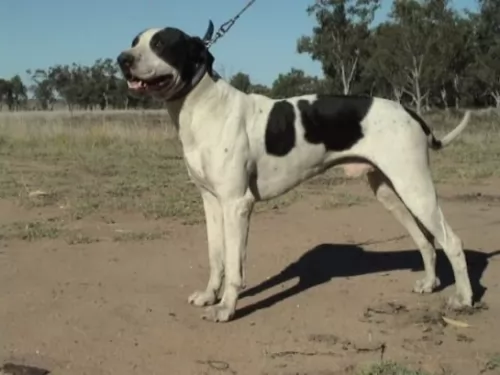 The Bully Kutta is a powerful, imposing dog and they have been nicknamed the ‘Beast from the East’. Unfortunately it is this dog’s thick bones, his looks and his strength that have him used for cruel dog fighting in Pakistan.
The Bully Kutta is a powerful, imposing dog and they have been nicknamed the ‘Beast from the East’. Unfortunately it is this dog’s thick bones, his looks and his strength that have him used for cruel dog fighting in Pakistan.
When not used for fighting, he makes a loyal, devoted companion for the owner who ensures proper socialization and training. Well raised Bully Kuttas are then good with children, being loving, protective and playful.
One just hopes that the future of this giant dog breed is brighter, and that he will be looked upon as more of a companion that just a dog-fighting object to bring in money for his owner.
 The Xolo is one of those dogs who don’t get ill easily. He is also intelligent and fairly easy to train. Add to that the fact that he is also a low maintenance dog as he doesn’t have a coat that needs brushing and grooming.
The Xolo is one of those dogs who don’t get ill easily. He is also intelligent and fairly easy to train. Add to that the fact that he is also a low maintenance dog as he doesn’t have a coat that needs brushing and grooming.
Give your Xolo lots of attention because in exchange for the good care you give him, you’re going to get a loyal, devoted pet who loves to be with you constantly.
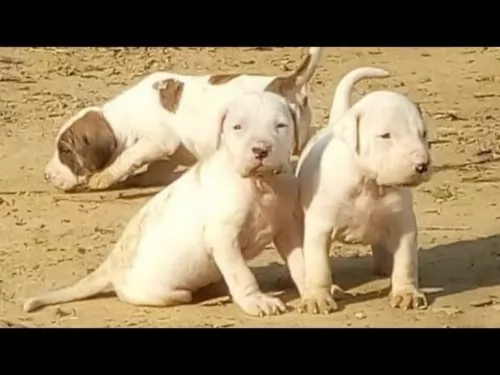 Your Bully Kutta is generally a healthy dog and not often affected by hereditary diseases, but with giant breeds such as this you will have to look out for diseases common to large dogs.
Your Bully Kutta is generally a healthy dog and not often affected by hereditary diseases, but with giant breeds such as this you will have to look out for diseases common to large dogs.
Typical illnesses to watch out for will include hip dysplasia, arthritis, skin allergies and bloat.
This is an inherited condition where the hip joint is improperly formed. For your Bully Kutta it causes wear and tear as well as stiffness in the hips and your dog battles to rise after lying down.
Arthritis in your dog can be managed but it can cause a lot of discomfort for him. This inflammation of the joints can cause pain and stiffness. It is more often seen in older dogs. It can also start at an early age because of problems with bone and joint development and abnormal rubbing within the joint.
Today there are a number of therapy options that can bring some kind of relief to your dog.
 The Xoloitzcuintli is a hardy dog in terms of health and can live to a ripe old age in dog years – some have been known to reach 18, 19 and 20 years of age. Without a coat, this dog is susceptible to sunburn so care must be taken when outdoors.
The Xoloitzcuintli is a hardy dog in terms of health and can live to a ripe old age in dog years – some have been known to reach 18, 19 and 20 years of age. Without a coat, this dog is susceptible to sunburn so care must be taken when outdoors.
Hairless dogs tend to battle with skin problems such as pimples. Skin allergies can cause itching and scratching and these can lead to bacterial infections. It is interesting to note that the genes that bring about hairlessness also produce troublesome teeth, so that dental disease is quite rife with these dogs.
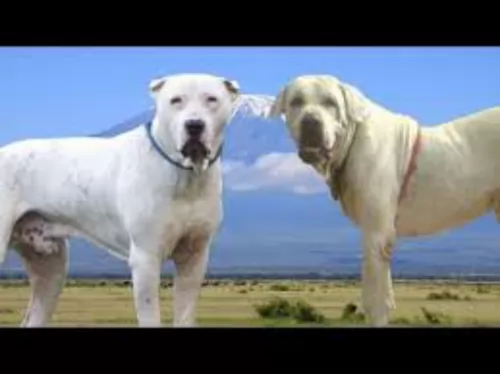 The short coat is low maintenance and as a moderate shedder too, all that is required really is to give your Bully Kutta a good brush twice a week to keep the coat in good condition.
The short coat is low maintenance and as a moderate shedder too, all that is required really is to give your Bully Kutta a good brush twice a week to keep the coat in good condition.
Brush his teeth 2 or 3 times a week with special canine-toothpaste and toothbrush to prevent plaque build-up. He’s a drooler too, so you will need to wipe his face and maybe your clothes of slobber from time to time.
This strong, muscular dog of yours will require an excellent diet. It’s always wonderful if you can give him home-made food such as vegetables, rice and meat. These days you get excellent commercially manufactured food for dogs, and your vet can advise you on the best food for a large, active dog such as the Buly Kutta.
Raw meat is absolutely essential for your dog from time to time and will ensure that his coat doesn’t become dull and with bald spots. Remember, that before dogs were domesticated they used to live on raw meat, so see that he gets some raw meat to prevent skin disorders. Make sure your large pet has a constant supply of fresh, cool water.
Bully Kuttas are going to need a walk every day in the form of exercise. If he is socialized you can take him into the park for ball games. He is a dog that will require plenty of space.
 You’ve got to remember with this dog breed that he doesn’t have a coat so he can burn easily when out in the sun. If you know you’ll be in the sun for long, you’ll have to apply special sunscreen.
You’ve got to remember with this dog breed that he doesn’t have a coat so he can burn easily when out in the sun. If you know you’ll be in the sun for long, you’ll have to apply special sunscreen.
You can wipe down your Xolo or bath him from time to time, though not to often so as to strip the natural oils from the dog’s body. The nails will need to be trimmed regularly, as long nails can be a danger as they can hook on things and cause pain and bleeding.
Provide your hairless pet with a nice, soft bed to lie on.
Take him to the vet when he appears to be ill and see that you get his vaccinations done to prevent deadly illnesses such as rabies and parvo.
Check his eyes and ears for infections.
Brush his teeth to remove plaque. Never use human toothpaste. Take a look at the different canine toothpastes available.
Never leave your pet in a hot car with no windows open.
Provide your Xoloitzcuintli dog with high quality dog food so as to enhance health and longevity. Keep food simple for your pet to avoid digestive problems. Boiled chicken, brown rice or pasta and cooked potato, carrots and spinach can be chopped up and added to his dry kibble from time to time. Also a little bit of raw meat added in occasionally can also be excellent. Avoid feeding your pet foods such as onions, avocados, nuts, chocolate, coffee and raisins.
Make sure this dog has access to cool, fresh water night and day.